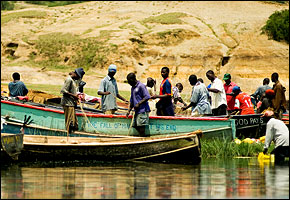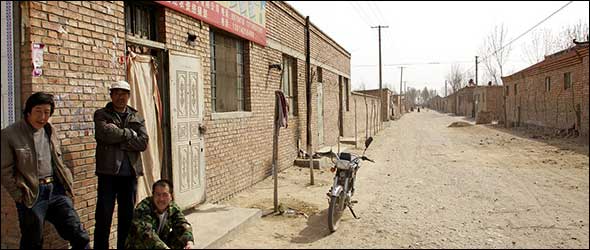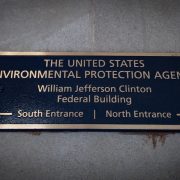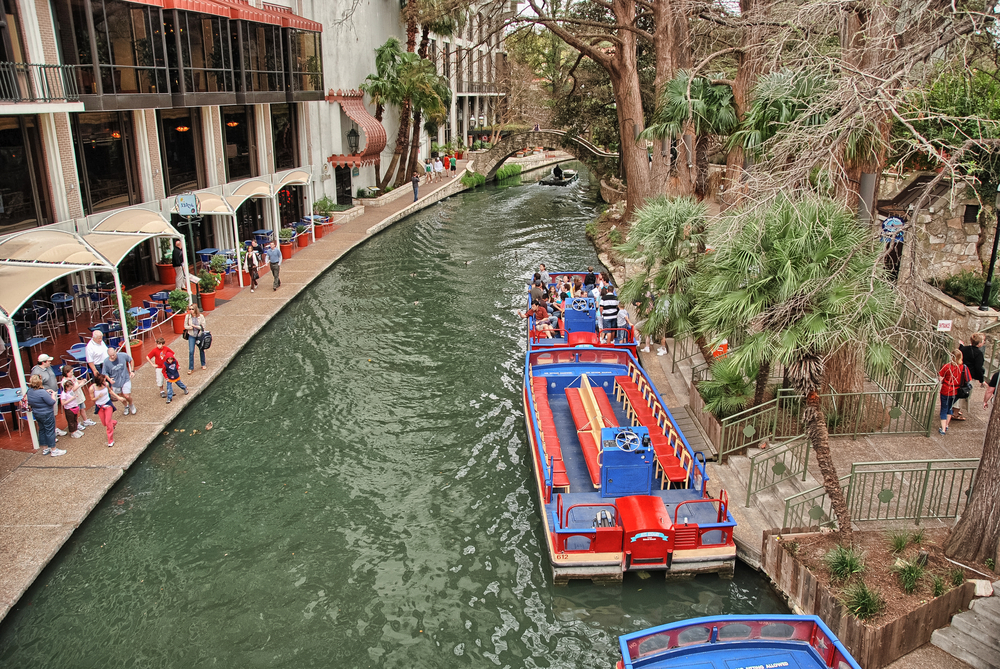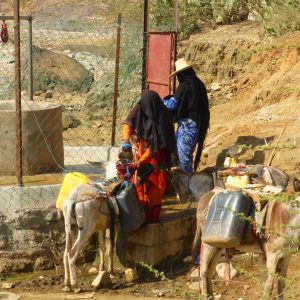International Conference Discusses Remedies to Lake Chad Crisis
Ambitious engineering project on the agenda.
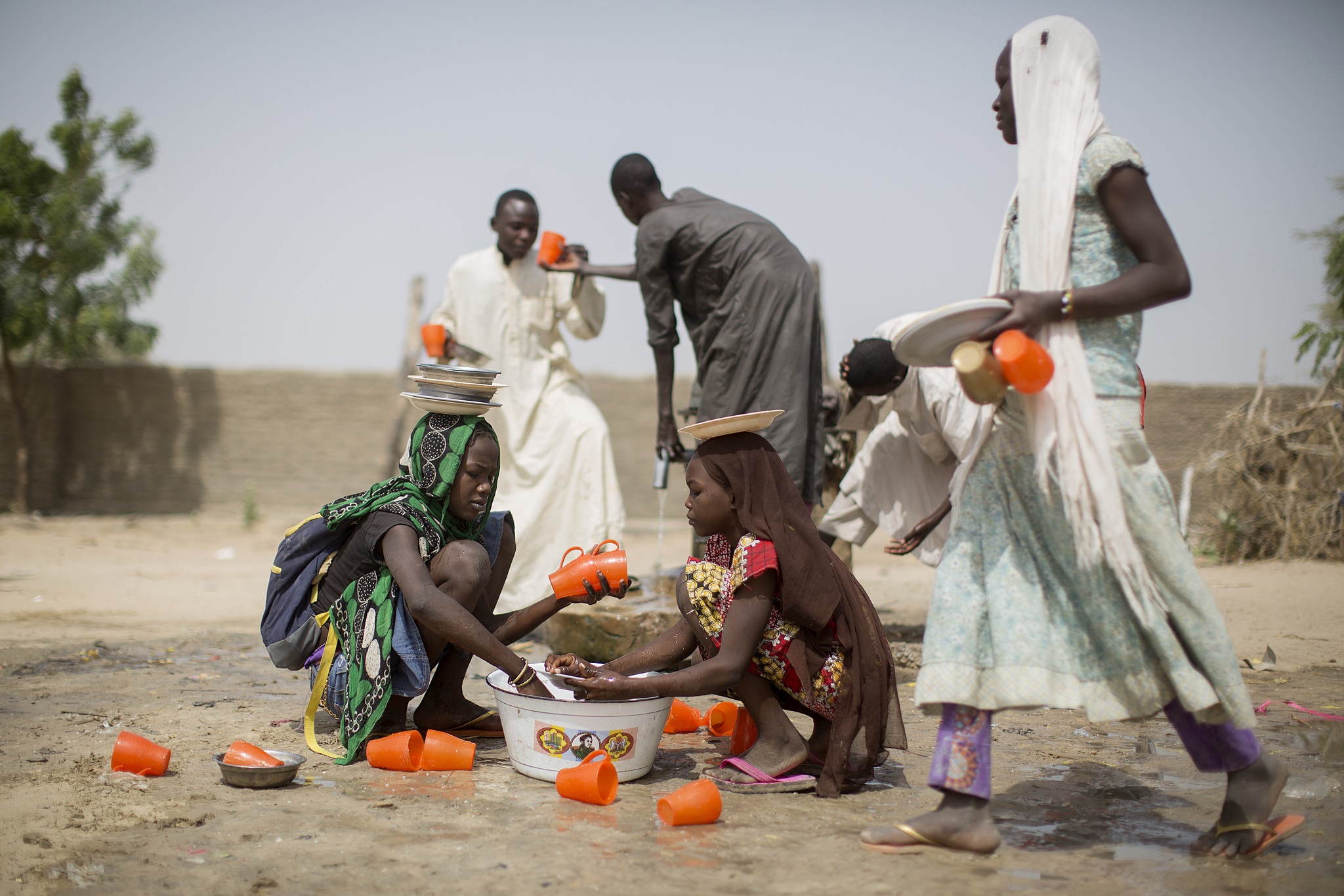
Some 2.2 million people in the Lake Chad region are displaced because of fighting, including those here in the Lac region of western Chad. Photo: Espen Røst / Bistandsaktuelt
By Brett Walton, Circle of Blue
Few political conflicts with environmental roots are more worrisome to security experts than the crisis in the Lake Chad basin. The drying of the most important water source in Africa’s Sahel region has propelled the growth of the Boko Haram terrorist movement, cut off herders and fishing communities from their livelihoods, and driven millions of people from home.
Remedies for what the UN calls one of the world’s most severe humanitarian crises will be discussed from February 26 to 28 at an international conference in Abuja, capital of Nigeria.
Though four countries — Cameroon, Chad, Nigeria, and Niger — ring the lake, Nigeria is an appropriate conference host, according to Dalil Djinnit, a research assistant at the European Centre for Development Policy Management, a think tank. Nigeria is the regional political power, and Muhammadu Buhari, the president, has used international gatherings to rally support for Lake Chad. Buhari hails from the country’s north, the region most ravaged by Boko Haram’s Islamist insurgency and the desiccation of the lake, which has declined by two-thirds over the last 50 years.
“The north is faced with complex challenges that are a dangerous mix of extreme poverty, extreme climate, and extreme ideology,” Djinnit told Circle of Blue in an email. “In other words, if Nigeria fails to take action to pacify its northeastern states, it will drastically intensify the Chad basin crisis.”
Circumstances are already dire. According to the UN, some 10.7 million people in the basin need aid, seven in ten of which live in northeastern Nigeria. At least 2.2 million people in four countries are displaced. Boko Haram recruiters exploit this economic desperation to win new followers, according to media reports.
Government leaders in the basin have used prominent international meetings to make the case for action on the Lake Chad crisis. Earlier this year, Buhari connected Lake Chad to regional security concerns at the African Union terrorism conference. At the Paris climate summit in 2015 the Lake Chad Basin Commission, a regional consultative group, and its member countries presented a 916-million-Euro plan to build climate resilience over the next decade.
The shrinking of Lake Chad, which has no outlets to the ocean, is largely due to changes in water availability. A drier climate since the 1960s sapped the rivers that flow into the lake, while warmer temperatures increased drying. Quite shallow, the lake is extremely sensitive to variations in rainfall, and even expanded during the wet years of 2013 to 2015. Growing populations around the lake are an additional stressor, especially if irrigation withdrawals increase from current marginal levels.
A grandiose solution will be discussed at the conference. For more than three decades, engineers and regional officials have proposed a 150-kilometer (93-mile) canal to divert water from the Oubangui River, a tributary of the Congo. A feasibility study more than a decade ago considered a diversion that would increase inflows to the lake by 15 percent.
Djinnit said that extreme poverty in basin countries and political instability in Central African Republic and Chad, key countries in the construction and operation of the canal, make it “very unlikely” that an interbasin transfer would break ground soon. The countries themselves acknowledge this too, noting in their action plan submitted in Paris that the water transfer is a “long-term initiative.”
Still, they hope that the conference this week can muster support for a range of restoration and economic development activities around farming and fishing.
“We cannot afford to fail,” Paul Biya, president of Cameroon, said in Paris, reflecting sentiments still held today.
Brett writes about agriculture, energy, infrastructure, and the politics and economics of water in the United States. He also writes the Federal Water Tap, Circle of Blue’s weekly digest of U.S. government water news. He is the winner of two Society of Environmental Journalists reporting awards, one of the top honors in American environmental journalism: first place for explanatory reporting for a series on septic system pollution in the United States(2016) and third place for beat reporting in a small market (2014). He received the Sierra Club’s Distinguished Service Award in 2018. Brett lives in Seattle, where he hikes the mountains and bakes pies. Contact Brett Walton



